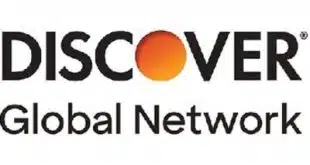Most of us will opt to pay a higher price at Amazon, which already holds our financial and private data, rather than pay less and expose our data to a merchant with unknown security practices. The net result is that the megastores keep getting bigger, and newcomers are stifled, however innovative, superior, and better-serviced their products may be.
I hear from various craftsmen that the coronavirus kept them at home. They opened an online store, but have no way to impress on their prospective customers that it would be safe to surrender their personal financial information to such a hack-easy home-bound merchant.
This is a fundamental socio-economic dilemma. Capitalism is powerful if it invigorates the bottom tier, not when it broadens the gap between rich and poor.
Technology can help in two conceptual modes: making hacking unprofitable and using digital cash.
A fence surrounding confidential data is only as good and as smart as its designers. Naturally, some hackers are smarter than the fence builders, and hacking continues. Now, suppose that the hacked data is short-lived. Its utility will diminish quickly to a degree that it won’t be worth the effort to steal it.
A new technology does just that, and without burdening the customer and the merchant with frequent replacement of personal financial data. Conceptually, it amounts to “painting data with short-lived colors.” A computer technique attaches to account numbers, PINs, and passwords some extra data not visible to the user. This data is stealthily mounted, and stealthily refreshed, as often as desired. It is short-lived. Hence, a thief will be able to abuse his spoils only for a short time before the “colors” are refreshed (see U.S. Patent 10/395,053).
Think of it. Today a Social Security Number represents a lasting value for a fraudster. But with this coloring technology, the same data will be unusable a week later. The Social Security Number will not change. The invisible add-on data will simply expire.
This new “data-coloring” technology can also prevent phishing because your email client will be able to silently and cryptographically examine the identity of the sender, and alert you against phishing attempts (U.S. Patent 10/733,374).
Beyond security, privacy considerations motivate consumers to use cash, especially for transactions they would rather shield from prying eyes, not because they are illegal, but because they expose the payer to ill-wishers.
Digital cash in its basic form is an extremely cost-effective solution for this, as BitMint has proven in its field-test cases. This is because when someone pays with digital cash, only the cash itself needs to be inspected, not the payer and not the payee. The authentication apparatus shrinks dramatically, and so does the service fee. Digital cash can be spent without an Internet connection, using hard wallets (U.S. Patent 10/754,326). The parties pay a fraction of a percentage point in operational fees. Now, once you tether money (see my book, “Tethered Money”), the cost rises, but so does the service.
Imagine the whole world as an accessible market. You could buy an independent movie directly from the overseas producer. You could buy a drawing or a statue you like directly from a poor artist far away. The buyer is not dependent on the security practices used by the unknown seller. In turn, you could get sensitive advice from an expert who gets paid without knowing who paid him.
No doubt, solid, non-speculative, quantum-safe, nationally recognized digital money is promising to catapult much-maligned capitalism to new heights. History tells us that bottom-up capitalism works. It is when monopolies emerge that the social benefit ebbs.
—Gideon Samid, gideon@bitmint.com



